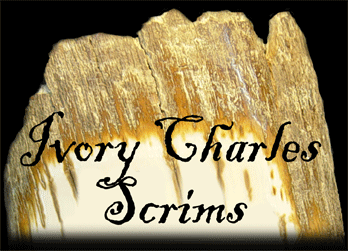

" Where Your Art Matters "
Artist Owned and Operated since 1996

Charles W. Conner III
Master Color Artist

Ancient Mammoth Ivory
Mammoth: Name for several large prehistoric elephants of the extinct genus Mammuthus,
which ranged over Eurasia and North America in the Pleistocene epoch (over 10,000 years ago).
The shoulder height of the Siberian, or woolly, mammoth, which roamed throughout the Northern
Hemisphere, was about 9 ft (2.7 m), and that of the imperial mammoth of the North American
Great Plains was up to 13 1/2 ft (4.1 m). Mammoths were covered by a long, shaggy, black outer
coat and a dense, woolly undercoat. They had complex, many-ridged molar teeth; long, slender
upward-curved tusks; and a long trunk. Ivory hunters have collected their tusks for centuries in Siberia,
where tens of thousands have been discovered; it is from these and from the drawings left by the
Cro-Magnon people in the caves of Souhtern France that the mammoth's appearance is known.
Paleolithic (Old Stone Age) people hunted mammoths, as is evidenced by remains of the animals found
together with tools, and may have contributed to their extinction. Mammoths are classified in the phylum
Chordata , subphylum Vertebrata, class Mammalia, order Proboscidea, family Elephantidae.
Ancient Mammoth Ivory - The Law:
Commerce in this 10,000- 40,000 year old ivory is completely unrestricted.
Fossil Walrus Ivory
The majority of fossil walrus ivory or old walrus ivory is excavated from old
village sites and is 100 to 2,500 years old. The ivory lay buried in a variety of mineral deposits
which slowly changed its color dependent on the length of time buried and the color of the soil.
Fossil Walrus Ivory - The Law:
Commerce in the ancient or unearthed walrus ivory is unrestricted.

